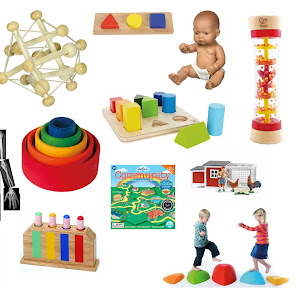There's something a little overwhelming about buying stocking stuffers for me. I want something that isn't just little junk that is going to fall apart, I want it to meet my children's interests, and be something that they are actually going to use. But, it also needs to be small and affordable. And there needs to be more than one - ahh! I have some go-to ideas that I fall back on for my kids every year - socks and underwear, for sure. Our stockings typically include five or six items plus a couple of candy/treat options. While some of it is small toys, I also like to explore some practical options that fit their current interests without feeling un-fun. So I thought I would share some more Montessori friendly practical stocking stuffers ideas. Practical Stocking Stuffer Ideas for Kids I highly recommend following your child's developmental stage and interests when considering what gifts to give them. But here are some ideas by age for inspiration: Babies Fleece ...















